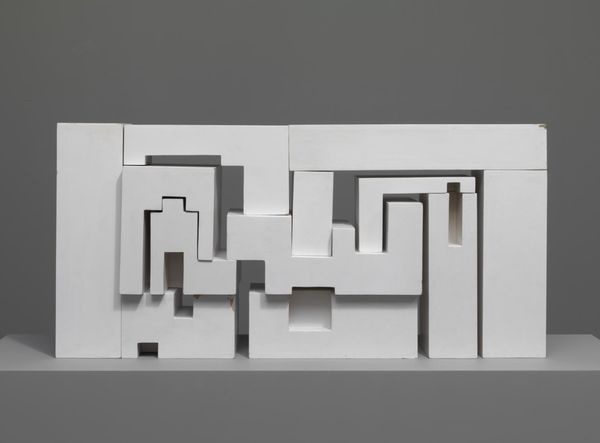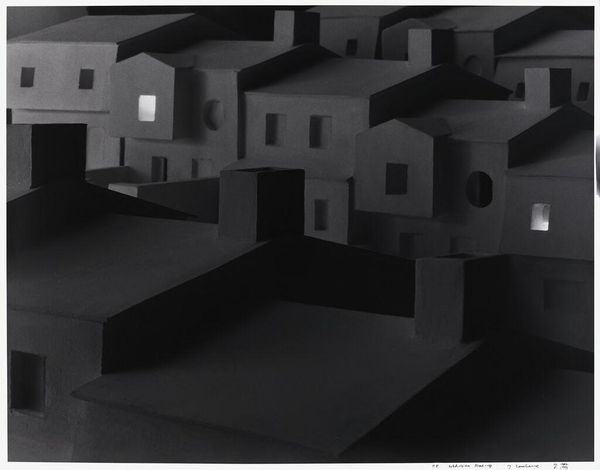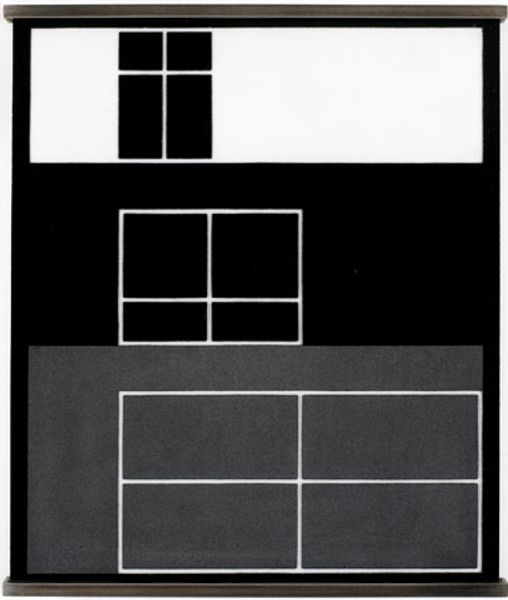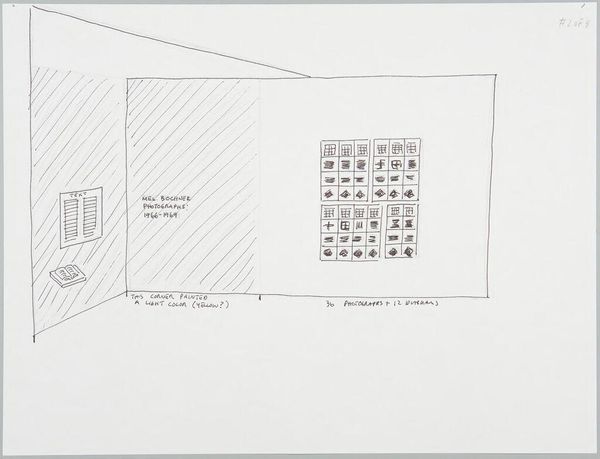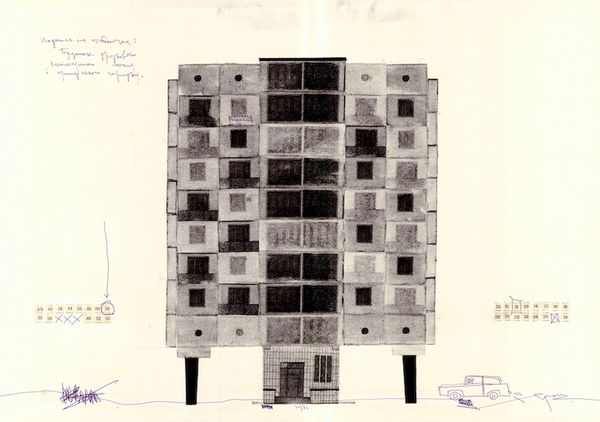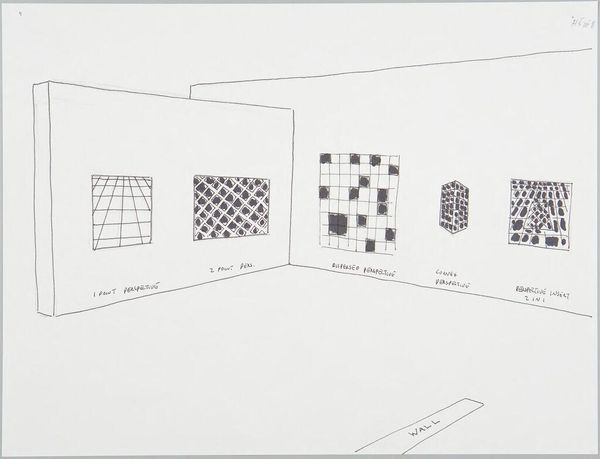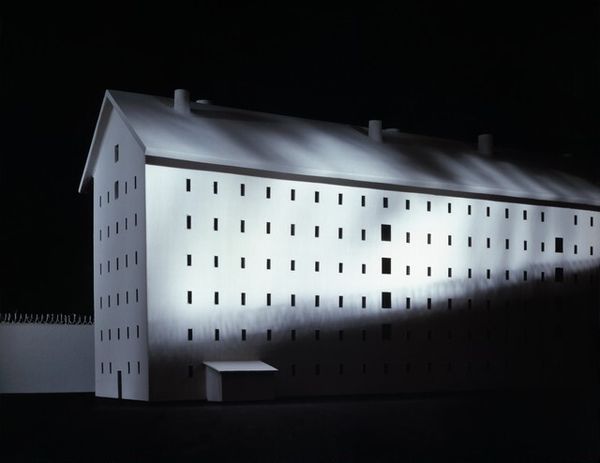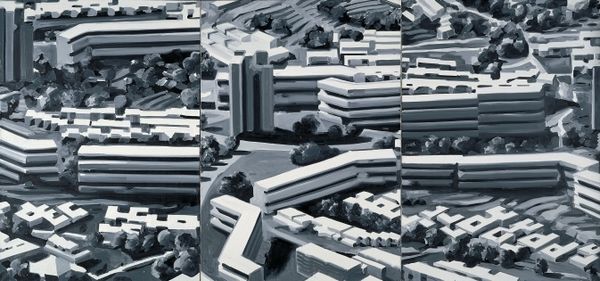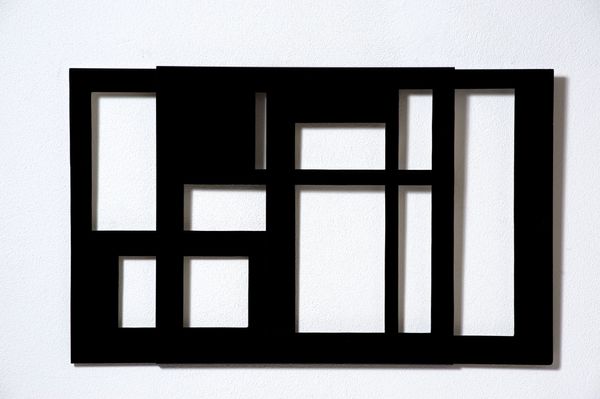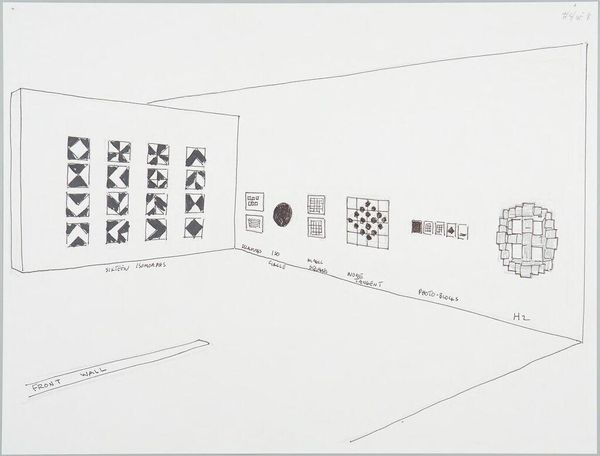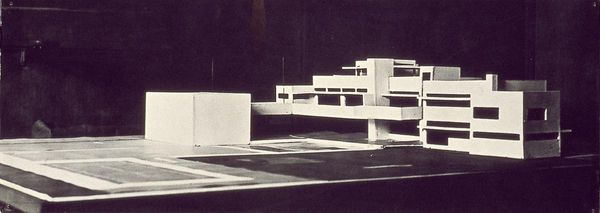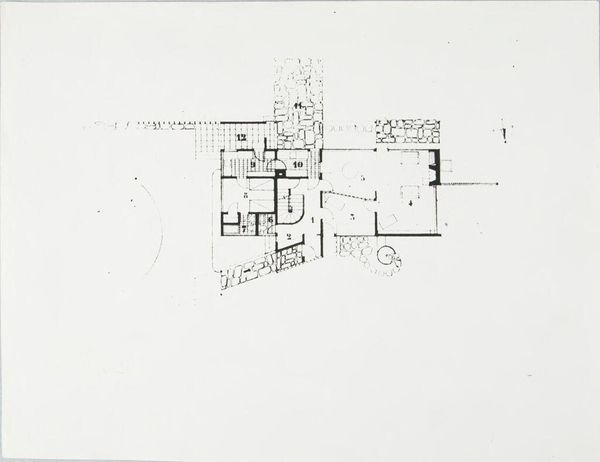
sculpture, architecture
#
architectural and planning render
#
architectural modelling rendering
#
building design
#
conceptual-art
#
minimalism
#
architectural diagram
#
architectural plan
#
geometric
#
sculpture
#
architectural render
#
architecture model
#
architectural section drawing
#
abstraction
#
architectural drawing
#
architectural proposal
#
architecture
Copyright: Sol LeWitt,Fair Use
Sol LeWitt made this model, Serial Project #1 ABCD, sometime in the mid-1960s, using painted wood. His conceptualist project challenges the traditional role of the artist as a skilled creator and engages with the growing influence of mass production in post-war America. The stark, geometric forms, arranged on a grid, evoke the minimalist architecture and urban planning of the era. LeWitt’s emphasis on seriality and systematic variation reflects a broader cultural interest in systems, logic, and objective processes. The grid, a symbol of rational order, becomes a framework for exploring permutations of simple forms. LeWitt was based in New York, and his practice emerged within a network of artists and critics who were questioning the established norms of the art world. By focusing on the underlying idea or concept, rather than the execution, LeWitt questioned the prevailing market-driven system of art. To understand LeWitt’s work, we can consult his writings, interviews, and the critical literature surrounding conceptual art. These resources help reveal the social and institutional contexts that shaped his artistic vision. In the end, it is about understanding art as contingent on its social and institutional context.
Comments
No comments
Be the first to comment and join the conversation on the ultimate creative platform.
